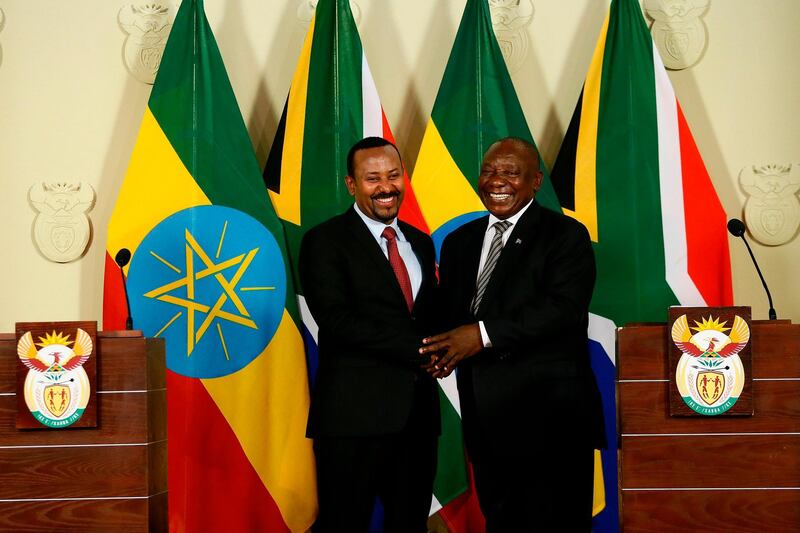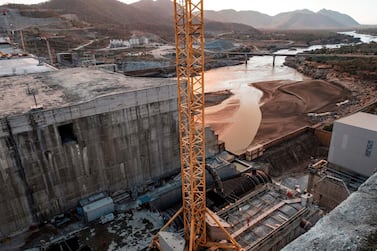Ethiopia’s prime minister has asked South Africa’s president to intervene in the Nile dam deadlock between Egypt and his country.
The three countries and neighbouring Sudan are being hosted by the US Treasury for negotiations in Washington on Monday.
Last week Ethiopia said broader talks had reached a deadlock after Egypt’s introduction of new proposals to fill the dam in 12 to 21 years.
“We are willing to play a role in whatever agreement can be crafted, and we will remain supportive to finding peaceful solutions between countries on our continent,” South African President Cyril Ramaphosa, who is in line to take over the African Union’s rotating chairmanship, said at a press conference on Sunday.
Tension has flared over the dam on the Blue Nile, which is set to be Africa’s largest hydropower project when completed.
Egypt and Ethiopia, with populations of about 100 million each, are struggling to reach an agreement on how to fill the reservoir.
During a state visit to South Africa on Sunday, Ethiopian Prime Minister Abiy Ahmed said: “We are requesting as a brother and a friendly country to negotiate between Ethiopia and Egypt as well as the Sudan.
“I am sure you will play a significant role in bringing us a win-win solution.”
Egypt, which depends on the Nile for almost all its fresh water, is urging parties to respect a 1959 pact on water allowances, which Ethiopia says should be reworked because it dates to the colonial era.
Construction of the dam is five years behind schedule and probably well over its original €3.4 billion (Dh13.89bn) budget.
When the government ran short on funding, ordinary Ethiopians were tapped for donations, and civil servants donated parts of their salaries.






